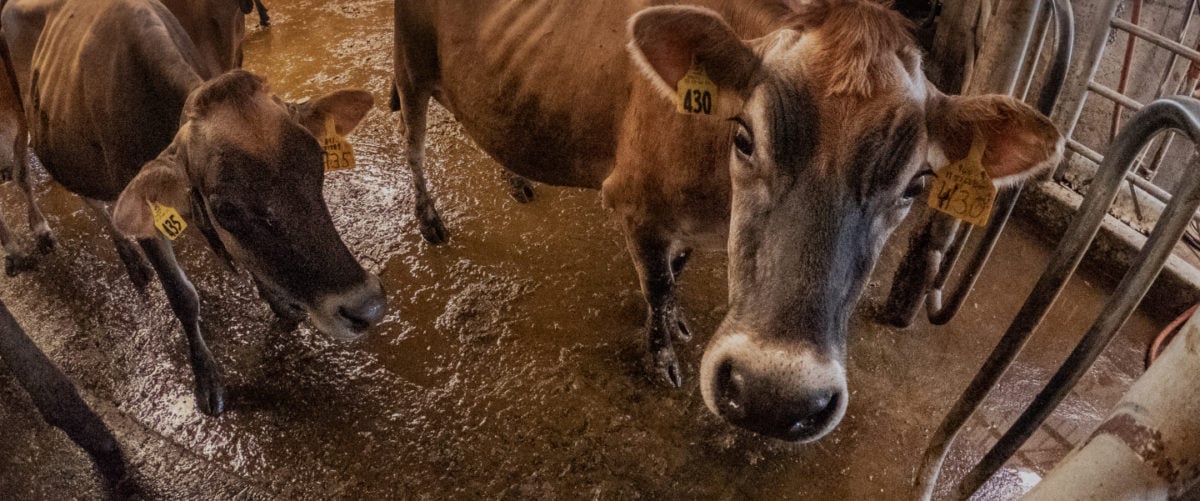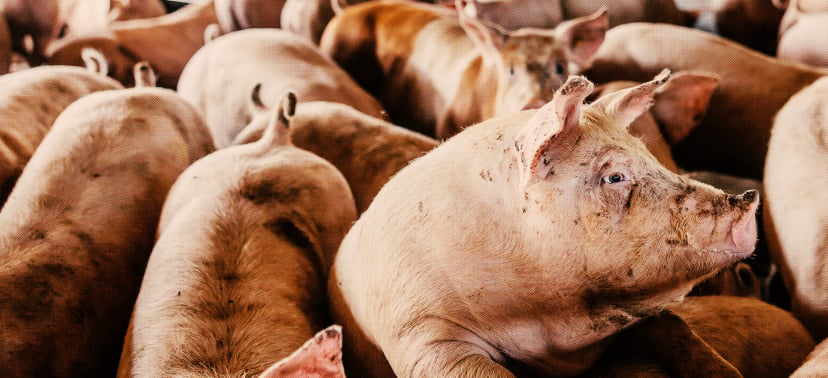EPA’s Next Move Decides the Fate of Factory Farm Polluters in New Mexico
Published Dec 22, 2021

EPA is set to renew an important water pollution permit for factory farms, which could determine whether New Mexico’s scarce water resources are protected... or not.
In New Mexico, there’s a big opportunity to strengthen water pollution standards for factory farms on the horizon. A Clean Water Act permit for the state’s concentrated animal feeding operations (CAFOs, or factory farms) is up for renewal by the Environmental Protection Agency (EPA).
This general permit safeguards the state’s scarce water resources by dictating what standards factory farms must follow to control their pollution. We’re advocating long-term for a moratorium on new and expanding mega-dairies. But this is an important opportunity to protect New Mexico’s waterways from factory farm pollution in the short term.
We want EPA to issue the most protective permit possible, and we are ready to fight it if they don’t.
What Is a General Permit and Why Does It Matter?
The Clean Water Act is a federal law that requires the EPA or state permitting agencies to regulate water pollution sources through National Pollutant Elimination Discharge (NPDES) permits. The goal of this system is to reduce — and ultimately eliminate — dangerous pollution discharges into our rivers, lakes, and streams.
Permits accomplish this goal by capping the amount of pollution a facility can discharge, and then requiring specific pollution controls. They also require discharge monitoring, to ensure polluters meet those limits. This permit program is responsible for dramatic improvements in water quality across the U.S. over the past 50 years.
Most states issue their own NPDES permits. But New Mexico is one of the few places where the EPA still administers the permit program.
Under the federal law, EPA can issue permits in two different ways:
- On a polluter-by-polluter basis, with what’s known as an “individual permit,” or
- For an entire category of pollution sources, with a “general permit” that applies the same pollution standards and requirements across the category.
A general permit has a broader impact. Instead of applying to one factory farm, it should apply to all New Mexico factory farms discharging pollution into waterways.
The General Permit Process Can Score Statewide and Even National Victories for Clean Water
When a general permit is issued, the public is entitled to comment on the permit. They also get to fight it when it fails to adequately protect waterways or otherwise violates the Clean Water Act.
Since a general permit is broadly applicable to many polluters, successfully strengthening it through public participation can have broad, positive impacts. This is especially true in states where the EPA issues the permit.
When the EPA issues a general permit, rather than the state, the public can challenge it in the federal court of appeals. In that setting, the case has the potential to set a national precedent.
Food & Water Watch recently challenged just such a general CAFO permit in Idaho. We contested its failure to require CAFOs to monitor their pollution discharges.
Discharge monitoring requirements are crucial to ensure compliance with pollution limits, and their absence clearly violated federal law. We brought our case in the Ninth Circuit Court of Appeals and won!
The court found that a general permit without monitoring requirements violated the Clean Water Act, and it struck down the permit. But even more importantly, the court’s ruling is relevant everywhere factory farm permits take the same illegal approach.
Why We Have Our Eye on New Mexico’s Permitting Process
The New Mexico general permit process is a prime opportunity to win stronger regulation of the industry’s polluting impacts. Factory farms in New Mexico, particularly mega-dairies, pose a constant threat to the state’s precious water resources.
These factory farms use immense amounts of water in their daily practices. Additionally, the colossal amounts of manure they generate can run off into nearby waterways and leach into groundwater. This waste can and does contaminate drinking water supplies for nearby communities with toxic nitrates.
Especially given New Mexico’s historic climate change-fueled drought, the state can’t afford further degradation of this limited resource. Long-term, we’re focusing on winning a moratorium on new and expanding mega-dairies in New Mexico. But a stronger general permit could result in significant improvements in the short term.
That’s why it’s vital that we make sure the upcoming general permit is strong. It should apply to as many factory farms as possible and impose stringent requirements to protect New Mexico waterways.
It’s the EPA’s job to update this permit every five years, and New Mexico’s general permit was up for renewal in August. However, we haven’t heard a peep out of the agency for the past four months.
We submitted a Freedom of Information Act request to find out why, and hold the agency accountable to its Clean Water Act obligations. We’ll be tracking the EPA’s actions and engaging the public to participate in the process when the time comes.
Tell New Mexico’s leaders it’s time for a moratorium on factory farms!


FACTORY FARMS MAKE US SICK
Make a gift to ban factory farms ~and have it matched $2-to-$1!
Enjoyed this article?
Sign up for updates.
TO TOP


